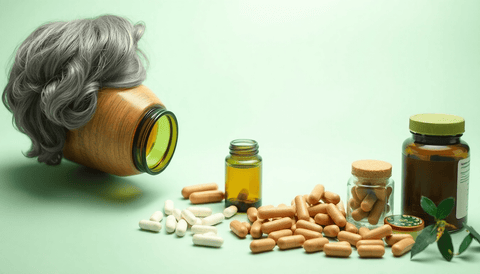Before you take menopause supplements, know the 7 key risks and potential side effects you should consider. This page centers on the topic of menopause supplement side effects and what to watch for before starting any product. You’ll also find safety tips, signs of trouble to monitor, and guidance on how to choose options that have stronger evidence behind them. First, there are concerns about quality and contamination. Some products may be mislabeled or contain ingredients not listed on the label, and there is a risk of contamination with substances that should not be present. Interactions with prescription medications or other supplements are another important factor, as certain ingredients can influence how other treatments work. There is also potential for hormone-related effects or impacts on hormone-sensitive conditions, since some ingredients can influence hormonal balance. If you have a medical history in this area, it’s wise to discuss menopause supplement side effects with a healthcare professional before use. Second, allergy and intolerance risks should not be overlooked. Ingredients like botanicals, fillers, or colorants can trigger allergic reactions or adverse responses in some individuals. In addition, common adverse experiences such as digestive upset, headaches, dizziness, or other discomfort are possible forms of menopause supplement side effects and may vary from person to person. There is also a possibility of ineffective outcomes due to limited evidence supporting many products, which means results can be uncertain and money spent may not be recovered. Finally, unknown long-term safety exists for some ingredients because long-term studies may be lacking. To stay safer, follow practical safety tips: look for products with transparent ingredient lists and evidence of third-party testing, and avoid items making bold claims without supporting information. Check exact ingredients, recommended usage, and avoid undisclosed fillers. Share your medication list with your provider to assess potential interactions, and be alert for signs that require medical attention, such as severe allergic reactions, chest pain, severe abdominal pain, or unusual vaginal bleeding. If you have concerns, or you want to evaluate options with proven background, consult a healthcare professional who can help interpret risks and guide you toward choices aligned with your health history.

